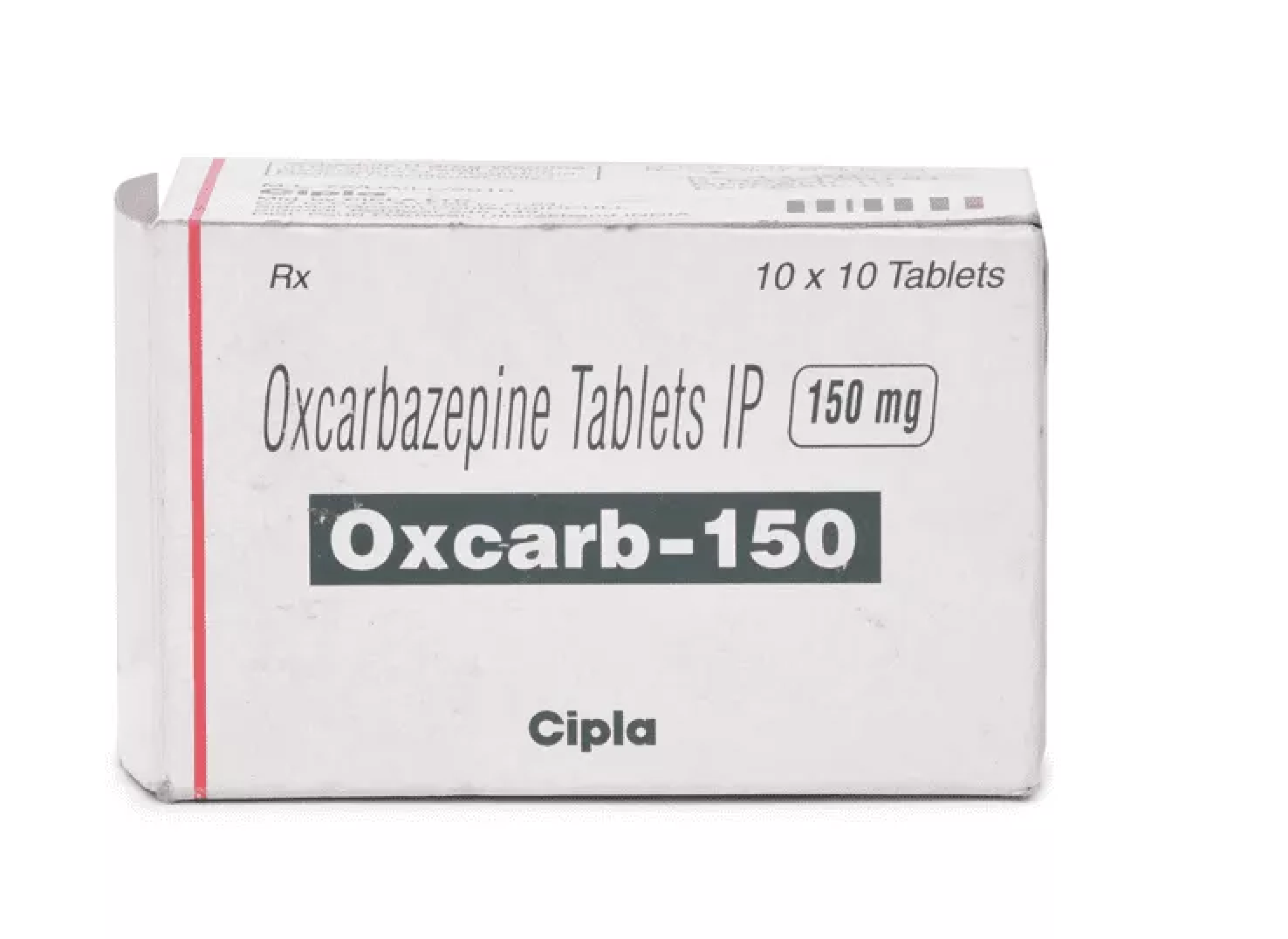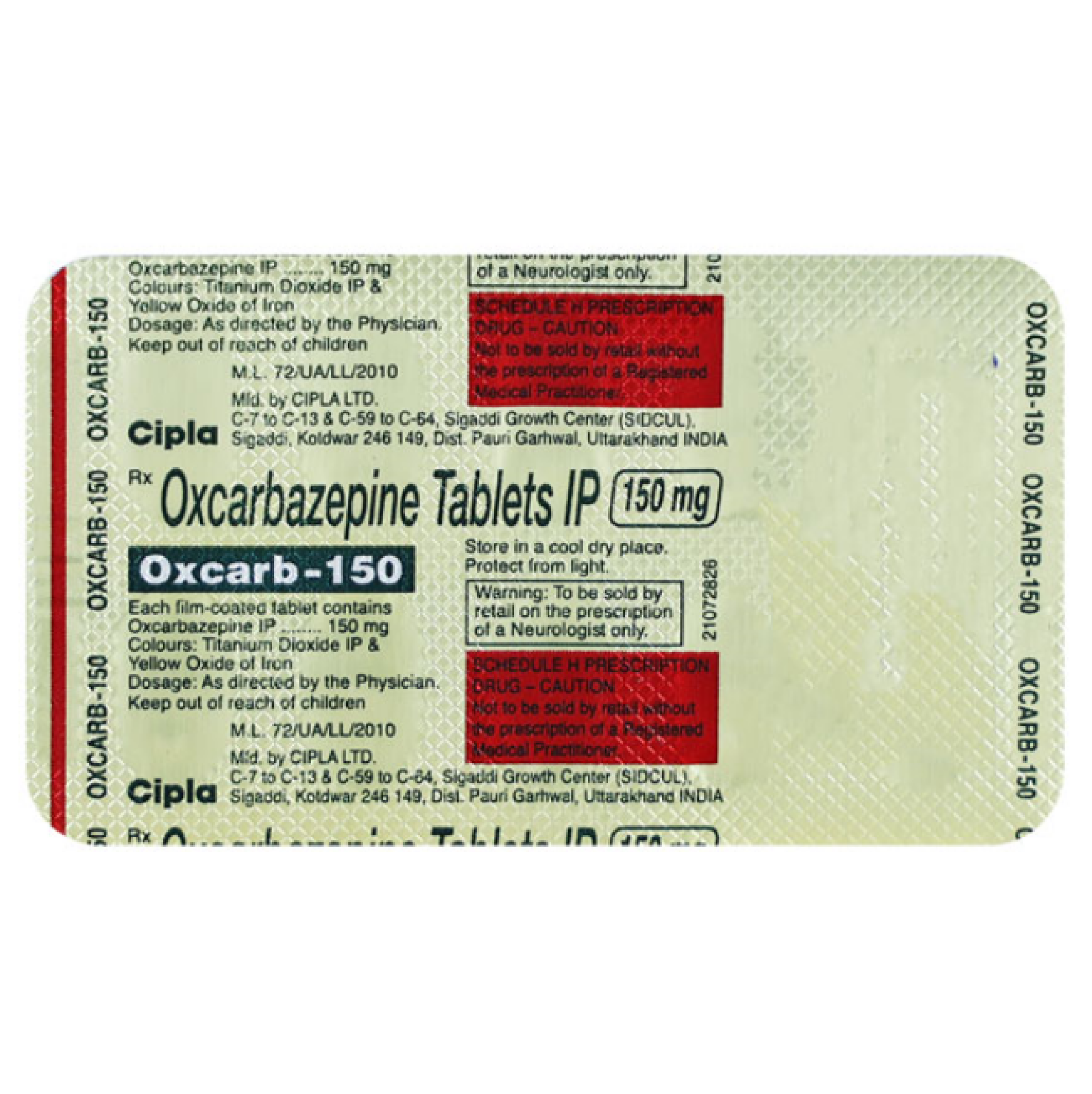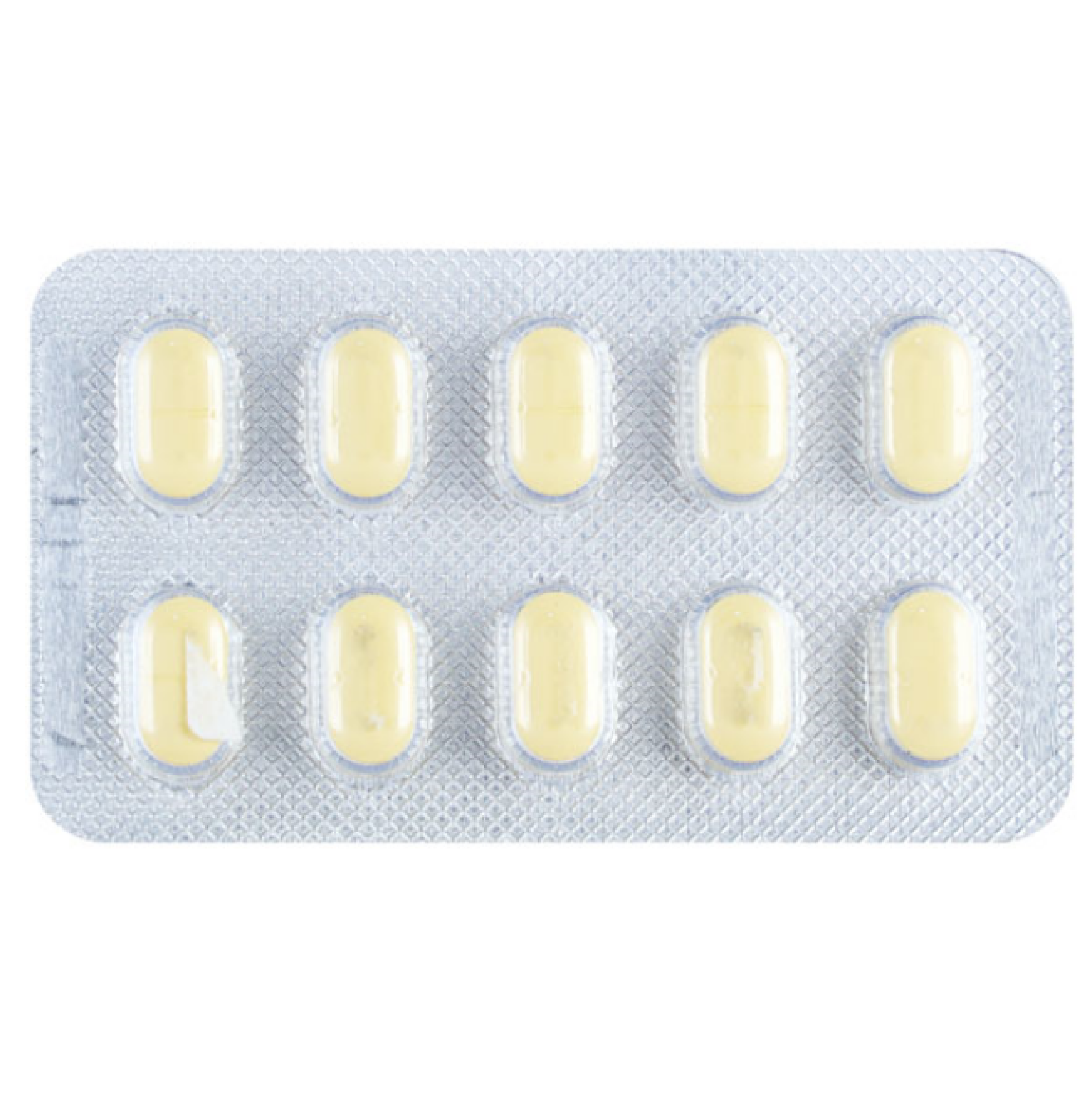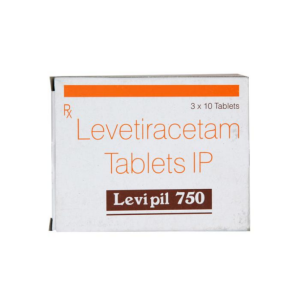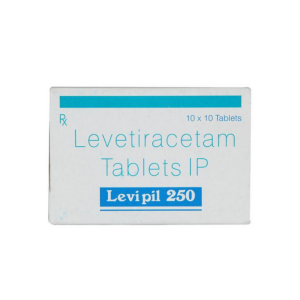Description
Oxcarb 150 mg is an anti-epileptic drug, which is known to reduce nerve impulses that induce seizures. The medicine contains the active ingredient Oxcarbazepine which is prescribed primarily for the treatment of partial seizures in both adults and children who are at least 2 years and above. It is also effective in treating bipolar and manic disorder.
Product Description
Before you take the drug, let your doctor know if you are:
- allergic to this active ingredient Oxcarbazepine or any other ingredient of the drug
- pregnant or planning to be pregnant
- breastfeeding as the drug may pass into the breast milk
Also, your doctor should be aware of:
- blood pressure
- past episodes of depression or suicidal thoughts
- a history of epilepsy
- The condition of vertigo or very fast heartbeat
- A diabetes history
- An allergy to other anticonvulsant drugs
Certain drugs can interact with Oxcarbazepine like theophylline, birth control pills or hormone replacement therapy, an antibiotic, drugs to cure tuberculosis, antifungal drugs like fluconazole, blood thinner like warfarin, anti-cancer medicines, heart or blood pressure medications, HIV or AIDs medications, antidepressants, steroids, or thyroid replacement medication. The drugs mentioned here are not the only ones that can interact with Oxcarbazepine anti- convulsant medication. There may be others as well. Share the list of all type of medications and related products which you are using with your doctor and never start a new medication without his or her advice.
Side Effects
The side effects associated with the use of Oxcarb 150 mg are diarrhoea, pain in the stomach, and vomiting. Get immediate medical help if you notice chest pain, double vision, appearance of blood in stool, tremor min hands and feet, and allergic reaction. In case of other drug reaction, call your doctor.
How to Use
Take Oxcarb 150 mg strictly according to your doctor’s direction or according to the instructions on the medication label. Avoid stopping Oxcarbazepine medication suddenly without the advice of your doctor, even if you feel alright. Your condition may become worse with increased seizures if you stop this medication suddenly. If overdose, talk to doctor or Poisons information centre for advice. Take medical help as soon as possible. Overdose may lead to blurred vision, co-ordination problems, increased seizures, light headedness, or fainting.


